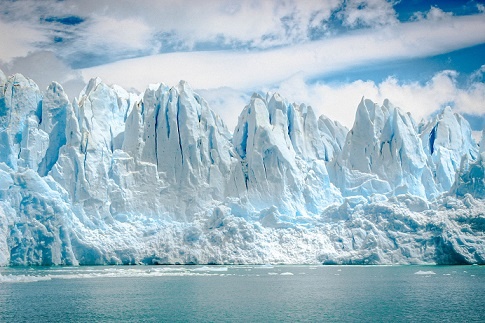The rate of ice loss for Earth has increased by 57% from 0.8 to 1.2 trillion tonnes per year since 1990s. As a result, the sea level has risen by about 35 mm. The majority of the ice loss is attributed to warming of the Earth.
Climate change, one of the key environmental issues facing mankind is the culmination of the chain of interlinked manmade processes. Deforestation, industrialisation and other related activities lead to an increase in greenhouse gases in the atmosphere which in turn traps more infrared radiation leading to an increase in temperature of the Earth (global warming). A warmer Earth leads to global ice loss caused by melting particularly in glaciers, in mountains and polar regions. As a result, sea level rise hence the increased risk of flooding in coastal areas and adverse impact on society and economy at large. The main reason for the Earth’s ice loss is global warming. The extent of ice loss in quantitative terms in relation to Earth’s warming was not known hitherto. A new research sheds light on this for the first time.
In order to find out the rate at which the Earth lost ice in the last three decades; the research team primarily used the satellite observation data collected from 1994 to 2017. For Antarctic and Greenland ice sheets, the satellite measurements alone were used while for Antarctic ice shelves, a combination of satellite observations and in situ measurements were used to quantify changes in mountain glaciers and for sea ice, a combination of numerical models and satellite observations were used.
The team found that Earth has lost 28 trillion tonnes of ice between 1994 and 2017. The largest loss was in the Arctic Sea ice (7.6 trillion tonnes), Antarctic ice shelves (6.5 trillion tonnes), mountain glaciers (6.1 trillion tonnes) followed by the Greenland ice sheet (3.8 trillion tonnes), the Antarctic ice sheet (2.5 trillion tonnes), and Southern Ocean sea ice (0.9 trillion tonnes). In all, the loss was more in the Northern Hemisphere. The rate of ice loss for Earth was increased by 57% from 0.8 to 1.2 trillion tonnes per year since 1990s. As a result, the sea level has risen by about 35 mm and the loss of floating ice has reduced albedo. The majority of the ice loss is attributed to warming of the Earth.
The rise in sea level will adversely affect the coastal communities in times to come.
***
Sources:
- Slater, T., Lawrence, I. R., et al 2021. Review article: Earth’s ice imbalance, The Cryosphere, 15, 233–246, Published: 25 Jan 2021. DOI: https://doi.org/10.5194/tc-15-233-2021
- ESA 2021. Applications – Our world is losing ice at record rate. Published: 25 Jan 2021.Available online at https://www.esa.int/Applications/Observing_the_Earth/CryoSat/Our_world_is_losing_ice_at_record_rate Accessed on 26 January 2021.
***




































